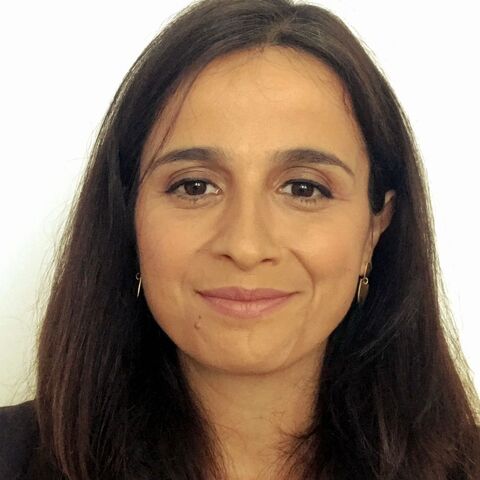AL-Monitor China-Middle East: China tests water with Syria’s Sharaa
Two meetings in as many months between Chinese officials and Syria’s new government signal Beijing’s willingness to initiate dialogue with interim President Ahmed al-Sharaa and move on, definitively, from the Assad era.
This engagement, however — as Al-Monitor’s Rosaleen Carroll reports — is fraught with limitations. Some are structural, given the nature of both governments, while others stem from the realities on the ground: militant entanglements and economic constraints that make warm ties a distant goal.
Let’s unpack. Thanks for reading!

Leading this week
In Damascus last Wednesday, Syrian Foreign Minister Asaad al-Shibani hosted a delegation led by Chinese Ambassador to Syria Shi Hongwei. This marked the second high-level meeting between the two governments since Assad’s ouster. The first was on Feb. 22 when Sharaa hosted Shi and his accompanying delegation.
Diplomatic niceties and talk of “enhanced cooperation” aside, the meetings signal the start of a normalized channel between Beijing and Damascus. But the road ahead is far from smooth.

➡️ From Damascus’ perspective, it's too soon to forget decades of Chinese policy backing the Assad dynasty, including Beijing’s role in shielding former President Bashar al-Assad from United Nations Security Council repercussions as he bombed and displaced his own people.
➡️ From Beijing’s standpoint, it’s equally hard to ignore that Syria’s new rulers are predominantly from Hayat Tahrir al-Sham, an Islamist militant group that has long hosted fighters from the Turkistan Islamic Party (TIP).
TIP is a Uyghur jihadist organization aiming to establish an Islamic state in China’s Xinjiang region and across Central Asia. According to War on the Rocks, an estimated 2,000-5,000 TIP fighters have entered Syria over the past 13 years, many via Afghanistan and Turkey.
Sharaa has shown reluctance to rein in HTS’ foreign fighters, despite pressure from the United States and Turkey. Specifically regarding the Uyghurs, Carroll notes that three TIP members were promoted by Sharaa’s government early in the transition — one to brigadier general and two to colonel.
On the economic front: While Beijing has historically been willing to overlook radical elements for the sake of business — as seen in Iraq, Afghanistan and Libya — Syria is different. Sanctions change the calculus.
Even under Assad, trade between China and Syria was steadily declining during the war. China did provide aid and sought investment opportunities in Syria’s oil and gas sectors, but with limited return.
Now, with tensions escalating between Israel and Turkey in Syria, as Adam Lucente reports, and with US sanctions still firmly in place, Beijing is likely to adopt a “wait and see” approach before committing any serious investment.
Joyce’s take: The regular meetings with Sharaa and his government represent an olive branch from China to Syria’s new leadership. But without significant movement on two key issues — Uyghur fighters and sanctions — Beijing’s outreach is unlikely to go far.
Syria is not a strategic priority for China, and won’t become one unless it meets three basic conditions:
- Repatriating Uyghur fighters
- Officially signing onto the Belt and Road Initiative (which it has yet to do, despite previous talks in 2022)
- Demonstrating internal stability that can support medium-term investment
It’s not an unrealistic road map. But under Sharaa, Damascus simply isn’t there yet.

Photo of the week

Syrian President Ahmed al-Sharaa meets with Chinese Ambassador to Damascus Shi Hongwei on Feb. 22, 2025. — SANA

Deals and visits ✈️
- Chinese firm wins contract to provide management services to Iraqi oil field
- US sanctions Chinese firms over alleged role in Iranian drone supply network
- Saudi Aramco CEO Amin Nasser meets with Chinese President Xi Jinping
- China’s Wisdom Motor mulls factory in Morocco
- China’s Changan Automobile partners with Saudi Jameel Motors to expand into South African market
- Syria’s foreign minister hosts Chinese delegation
- China’s Baidu expands ride-hailing service to UAE
- Chinese stationary manufacturer Deli Group to establish $200 million industrial complex in Egypt
- Algerian Industry Minister meets with delegation from China State Construction Engineering Corporation
Thanks to Al-Monitor's Rosaleen Carroll for helping with this section.

What we are reading
- "I Just Saw the Future. It Was Not in America," Tom Friedman, The New York Times
- "Trump ends China tariff loophole used by Shein and Temu," Nathan Bomey, Axios
- "What are the key drivers of Xi’s economic policy in 2025?," Jonathan Czin, Brookings



